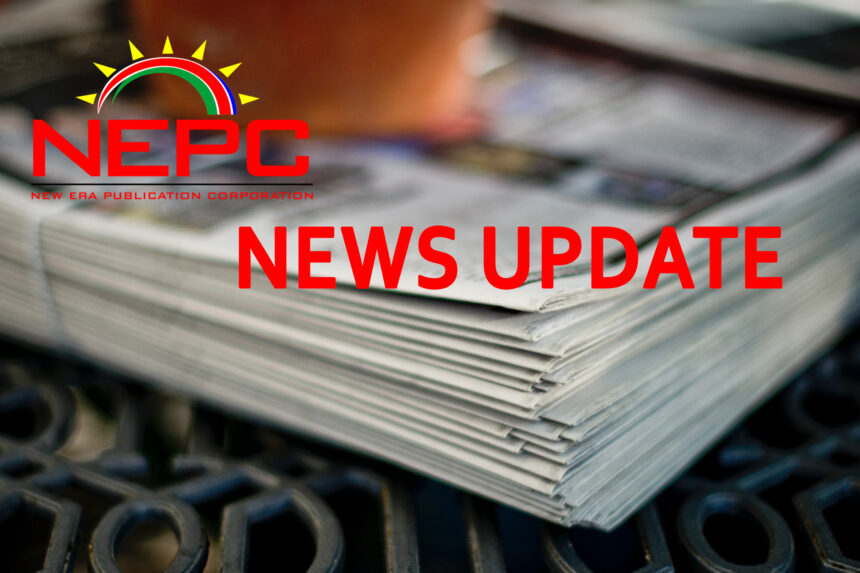Lahja Nashuuta
The Global Fund has injected N$647 million in grants to Namibia in its quest to combat HIV/AIDS, tuberculosis (TB), and malaria.
The new grants were signed off by the fund’s head for Africa and the Middle East, Caty Fall Sow, and health minister Dr Kalumbi Shangula last Friday.
Speaking at the signing ceremony, Sow said the new grants will continue to support the fight against HIV/AIDS, TB, and malaria while also strengthening public health systems over the 2024–2026 period.
Sow said the funds will be distributed in three tranches, of which N$381.8 million will be channelled towards HIV/AIDS programmes, N$90 million to support the anti-malaria drive, and N$127 million to fight TB.
Furthermore, Namibia also received an additional N$15.8 million for its Covid-19 response mechanism.
The Global Fund has hailed Namibia as one of the African countries that have achieved the ambitious “95-95-95” key targets for saving lives and stopping transmission set by the Joint United Nations Programme on HIV/AIDS (UNAIDS).
Currently, 95% of people living with HIV know their status, 97% of those who know their status are on antiretroviral treatment, and 94% of those on treatment have suppressed viral loads.
With the money, Global Fund expects the Namibian government, through the Ministry of Health and Social Services, to reduce the number of people newly infected with HIV and people dying of HIV to less than 1 out of 1000 people per year.
The fund also wants Namibia to expand the number of AIDS patients supported by its anti-retroviral treatment programme and to strengthen the prevention programming for other key populations.
At the same event, Shangula said the grant will be used, among others, for the procurement and distribution of life-saving medications, diagnostics, and treatments for HIV, TB, and malaria.
He said the grant will also enable the country to implement targeted public health interventions aimed at preventing disease transmission and promoting wellness.
“The funds will enable us to strengthen and expand our healthcare infrastructure, particularly in underserved areas, ensuring that even the most remote communities have access to essential health services. Shangula further noted that the funds will also be used to complete the 17 health posts under construction in //Kharas, Omaheke, Otjozondjupa, Oshikoto, Kunene, Zambezi, Kavango East, Kavango West, Ohangwena, Oshana, and Omusati regions.
“These structures are 90% complete, and as I speak, there is a team from both the Global Fund and the Centre for Disease Control and Prevention doing a final inspection of the progress made. “In addition, some funds were used to strengthen Namibia’s medical oxygen infrastructure by installing new pressure sweeping adsorption (PSA) oxygen plants at Okahao, Eenhana, Okongo, and Andara district hospitals to be able to provide 96% pure oxygen. Additionally, they procured 450 oxygen cylinders of various sizes to be filled from these plants, aiding in oxygen provision to other health facilities,” Shangula said.
He added, “By investing in the construction and equipping of healthcare facilities, we can bridge the gaps in healthcare delivery and improve health outcomes across the nation.”
Some of the money will also be used for capacity-building initiatives aimed at training and empowering healthcare professionals. “With the fund’s steadfast support, we are empowered to not only combat HIV, TB, and malaria but to overcome barriers, defy odds, and build a healthier, more resilient, and prosperous future for all Namibians,” Shangula said. -lnashuuta@gmail.com



